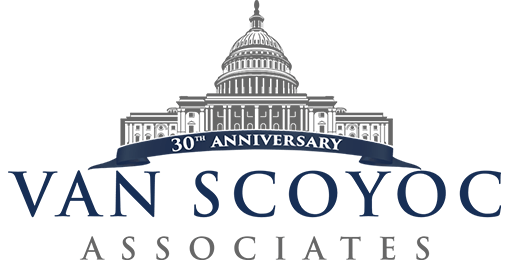Newsroom
Washington, still a great place to make a career
The chance to write an introduction for this new edition of Washington Representatives made me think about the state of our lobbying profession. Even for me, a famously upbeat person, the hypocrisy has gotten to be a bit much.
One Presidential candidate campaigns against lobbyists in Washington and refuses to take our money or allow us to work on his behalf. The other one calls us “birds of prey.” Meanwhile, their own top advisors – only very recently (and probably temporarily) cleansed of their lobbying taint – are providing valuable, if not essential, advice to both of them.
This isn’t an entirely new phenomenon. Since the term “lobbyist” was coined during President Grant’s Administration, our profession has often been pilloried, sometimes fairly, usually not. But never in my 35 years in Washington has the quality of our representation been more important than it is today. The challenges ahead for the next Administration, the next Congress, and the country as a whole are far beyond anything we have faced in the last half century.
So, I reached down into the lower left-hand drawer of my desk and pulled out an edition of Washington Representatives. I opened at random to pages 570-571, and the organizations listed as clients there represented an amazing diversity of interests. There were Gulfstream Coach Inc., Gulf Port, Miss., GumboPac, Gun Owners of America, Gundersen Lutheran Medical Center, H&R Block, Habitat for Humanity International, Hadassah, the Halibut Coalition, HALT (an organization of Americans for legal reform), and Hamilton Beach/Proctor-Silex Inc.
We at the Van Scoyoc Companies could point to a similar mix of recent activities – helping the Islamic Republic of Pakistan in the global war on terror, seeking equivalent insurance coverage for mental illness, providing the best wireless broadband access, strengthening university research and American competitiveness, increasing Project Hope’s humanitarian outreach, or restoring cuts in the Foster Grandparent Program.
Before I came to Washington in 1974 as a young chemical engineer/lawyer for the DuPont Company, I had never contemplated lobbying. It was just a matter of good fortune and being in the right place. I was also lucky to learn from pros like Irving Shapiro, the Chairman of the DuPont Company.
A former Justice Department lawyer and Chairman of the Business Roundtable, Mr. Shapiro was said to be President Carter’s favorite business executive. He spent a lot of time in Washington. Mr. Shapiro liked to say that being successful here wasn’t a mystery. Just do your homework, be prepared, and present the facts as effectively as possible, and more often than not, you’d succeed.
I became a great believer in that advice. Then, one day, I happened to be talking with a very wise Staff Director of one of the major Senate committees. I repeated Mr. Shapiro’s words and was shocked when he interrupted me, looked me in the eyes, and said, “Stu, that’s BS.”
“All we get up here are facts. Everyone gives us facts,” the Staff Director said. “We don’t have the resources, time, or the intellect to tell if one person’s facts are better than somebody else’s facts. At the end of the day, it generally comes down to who is giving us the facts.”
I now believe they both were on to something. No profession is automatically honorable. Lobbying is no different. It’s what you make of it. Right now, we are paying the price for the one or two crooked members of our profession who made us the whipping boys of the current Presidential campaigns, but eventually, some new Washington “controversy” will displace this one.
Meanwhile, people interested in politics and policy continue to gravitate toward Washington, just as those interested in entertainment head for Hollywood, or those fascinated by finance set their sights on New York (although that may be changing). When I meet with young people thinking about a Washington career, I talk about how great working in this town of ours can be, how you can address issues you care about, in ways you think you can be successful, with people whom you truly enjoy and admire.
I also recommend those words of advice I heard years ago. Prepare your facts, do your homework, but also remember the “who.” In other words, make sure your clients have a credible case, but more importantly, make sure your reputation provides an audience.
